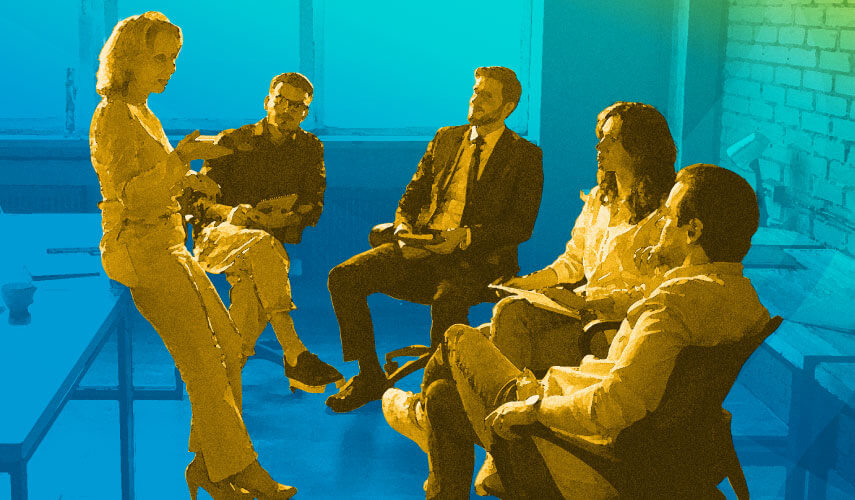
EAB Thought Leadership
When the Pressure’s On:
Time-Tested Advice for Today’s Leaders
We are leading in a time of profound uncertainty. Higher education leaders are being called to confront challenges unlike any we’ve faced before — existential financial strain, shifting enrollments, political headwinds, and an ever — accelerating pace of change. The pressure is intense, and the consequences are significant.
To offer perspective and support, we invited members of CampusWorks’ Executive Advisory Board — a distinguished group of former presidents and chancellors — to reflect on the leadership lessons they wish they had learned sooner and to share their most valuable advice for today’s higher ed leaders.
Their insights are hard-won, deeply human, and more relevant than ever.
Contributors
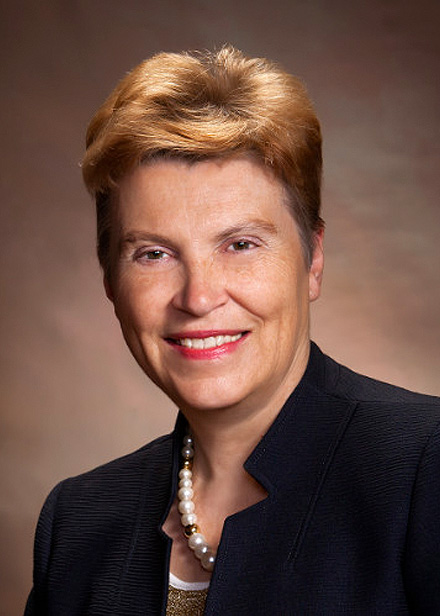
Christine Hammond, Ph.D.
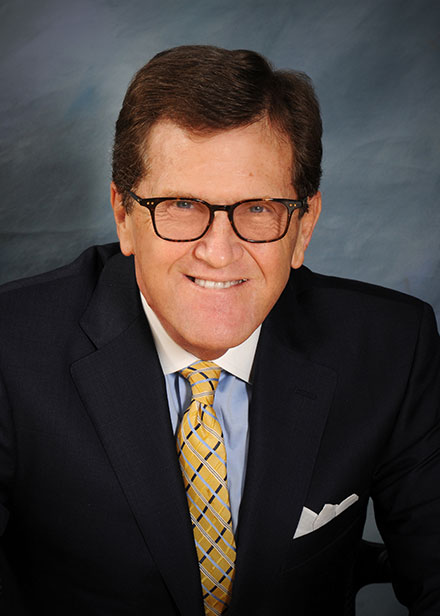
Frederick V. Moore, J.D.
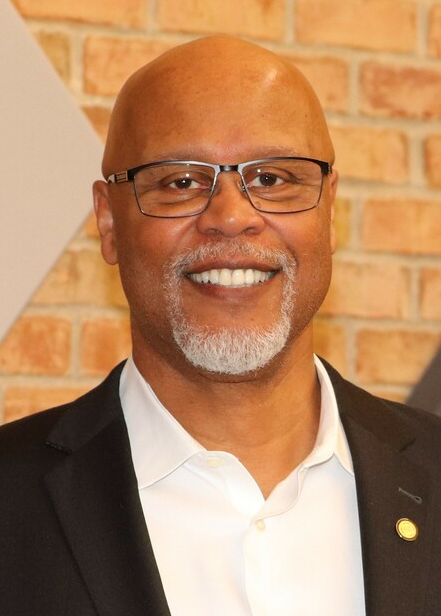
Dale K. Nesbary, Ph.D.
Dale K. Nesbary, Ph.D. served as President of Muskegon Community College from 2009-2022 during which time the college was named best community college in Michigan in 2017 and 2021 by BestColleges.com and Intellegent.com respectively, employing standard success metrics. The College featured perennially nationally ranked RN and LPN nursing programs, and two performance groups (West Michigan Concert Winds and the MCC Collegiate Singers) having performed in the Isaac Stern Auditorium of New York’s famed Carnegie Hall.
Prior to MCC, he served as Vice President and Dean for Academic Affairs and Full Professor of Political Science at Adrian College and as Associate Professor and Director of the Master of Public Administration Program at Oakland University. He also served as Research Director and Technical Services Director with the Boston Police Department as well as in leadership positions with City of Boston central administration. He also held analytic positions with the National Conference of State Legislatures in Denver, Colorado, and the Michigan Senate Fiscal Agency. During his professional career, he personally led multiple strategic planning processes, technology process redesign initiatives, and governance transitions.
He has presented on hundreds of occasions to academic, leadership, governance, legislative, and executive branch institutions and published three books and over 30 academic/refereed papers primarily in the areas of finance, technology, and policing. He earned a Ph.D. in Law, Policy and Society from Northeastern University, a Master of Public Administration degree from Western Michigan University and a Bachelor of Arts degree from Michigan State University.
In addition to the CampusWorks Executive Advisory Board, he continues to chair the Trinity Health System Michigan Board and previously served on the Center for Community College Student Engagement (CCCSE) National Board, the American Association of Community Colleges (AACC) Workforce Development Commission, and the American Council of Education (ACE) Fellows Executive Board among others. He remains a silver life member of the NAACP.
He resides in Newburg, MD with his beautiful wife of 43 years, Connie and is the proud father of two adult children, Nicole, and Matthew. His interests include baking bread, crafting jams, and gigging with any group needing a trombonist.
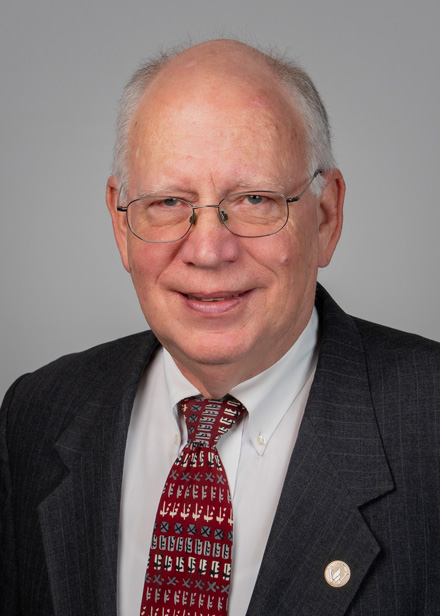
George Pernsteiner
Q: What is one critical leadership lesson you wish you had embraced earlier in your presidency — something today’s college leaders should prioritize as they confront growing financial and enrollment pressures?
Christine Hammond:
Especially during difficult times, set clear performance expectations from the start — and do so with kindness. Looking back, I can see that there were moments when I tolerated underperformance, and that ultimately put an unfair burden on other team members who had to fill in the gaps.
Frederick Moore:
I wish I had embraced the practice of deep listening earlier in my presidency. True listening means more than simply hearing without interrupting — it requires full presence, setting aside the urge to plan your response, and focusing entirely on the speaker. Deep listening creates the kind of trust that enables collaborative problem solving and allows leaders to absorb both the questions and the wisdom being offered. It’s foundational to innovation, particularly in times of adversity.
Dale Nesbary:
I learned the importance of balancing local and national advancement efforts. My institution had great success securing state, federal, and grant funding for infrastructure improvements, but major gifts from local sources came more slowly. Leaders must recognize that fundraising isn’t only about bricks and mortar, it’s also about building endowments and securing resources that support teaching and learning.
George Pernsteiner:
The president or chancellor has a powerful voice, and I sometimes waited too long to use mine. While building understanding and consensus is essential, it’s also critical to know when to speak up and make your case. There’s a delicate balance between bringing people along and ensuring that your message is heard when it matters most. In hindsight, I was too cautious.
Q: Given the current pace of change in higher education, what practical advice would you offer presidents for leading their teams through uncertainty while sustaining morale and momentum?
Christine Hammond:
Even as you set high expectations, strive to lead with kindness and optimism. People are already carrying a heavy load of anxiety — they look to us for steadiness and hope. Leadership is positive pressure, persistently applied.
Frederick Moore:
Every institution has weathered difficult seasons. Reminding your community of past challenges — and how you overcame them — can bolster confidence and build a sense of resilience. Retelling those stories can help people believe that you’ll get through the current uncertainty, too.
Dale Nesbary:
Stay anchored in your mission. A mission that has been developed collaboratively — with students, faculty, staff, governance, and community input — can provide the clarity and consistency needed to weather disruption. It helps people focus on what matters most.
George Pernsteiner:
Your institution exists for a reason. The mission isn’t just a statement; it should reflect who you are and what you aim to achieve. When your teams are aligned around that purpose, it becomes your North Star. Mission provides hope, strength, and truth. If it doesn’t, you’ve either strayed from it, or your mission isn’t aligned with your institution’s true purpose.
Q: From your experience, what strategies proved most effective in building trust and alignment across campus during times of institutional transformation?
Christine Hammond:
Above all, listen — genuinely — and stay curious about the lives and circumstances of others.
Frederick Moore:
During my presidency, we used program prioritization to reallocate millions of dollars toward strategic priorities. It was a difficult process, requiring tough decisions. But we succeeded because we committed to constant, transparent communication. Even when people were uneasy, they understood the process — and that made all the difference.
Dale Nesbary:
Don’t be the sole messenger. Empower a wide range of campus leaders to communicate change. When you engage a broad coalition of stakeholders — students, faculty, staff, governance, community members, business leaders, donors, elected officials — they become champions of transformation. An integrated strategic plan ensures all voices are heard and helps align both internal and external constituencies. Alumni, families, retirees, and many others are part of this ecosystem, and their support matters.
George Pernsteiner:
Trust and alignment are built on communication that is clear, values-based, and mission-driven. It requires actively listening to different perspectives and affirming them where possible. And it requires enthusiasm — genuine enthusiasm — for how the change will strengthen the institution and enhance its ability to fulfill its mission.
Final Thoughts
Leadership in higher education has never been easy, but it is especially challenging now. Yet as these exemplary leaders remind us, progress is possible when presidents lead with purpose, communicate with courage, and remain grounded in mission.
Private Executive Coaching
If you’re interested in private executive coaching — or simply need a bit of trusted advice — our Executive Advisory Board members are here to support you. Email us at transform@campusworksinc.com to schedule a time to talk.
Let’s Talk!
For more than two decades CampusWorks has been listening to our clients. Our insight and experience informs a deep understanding of the challenges institutions of higher education face. Let’s facilitate change —together.



